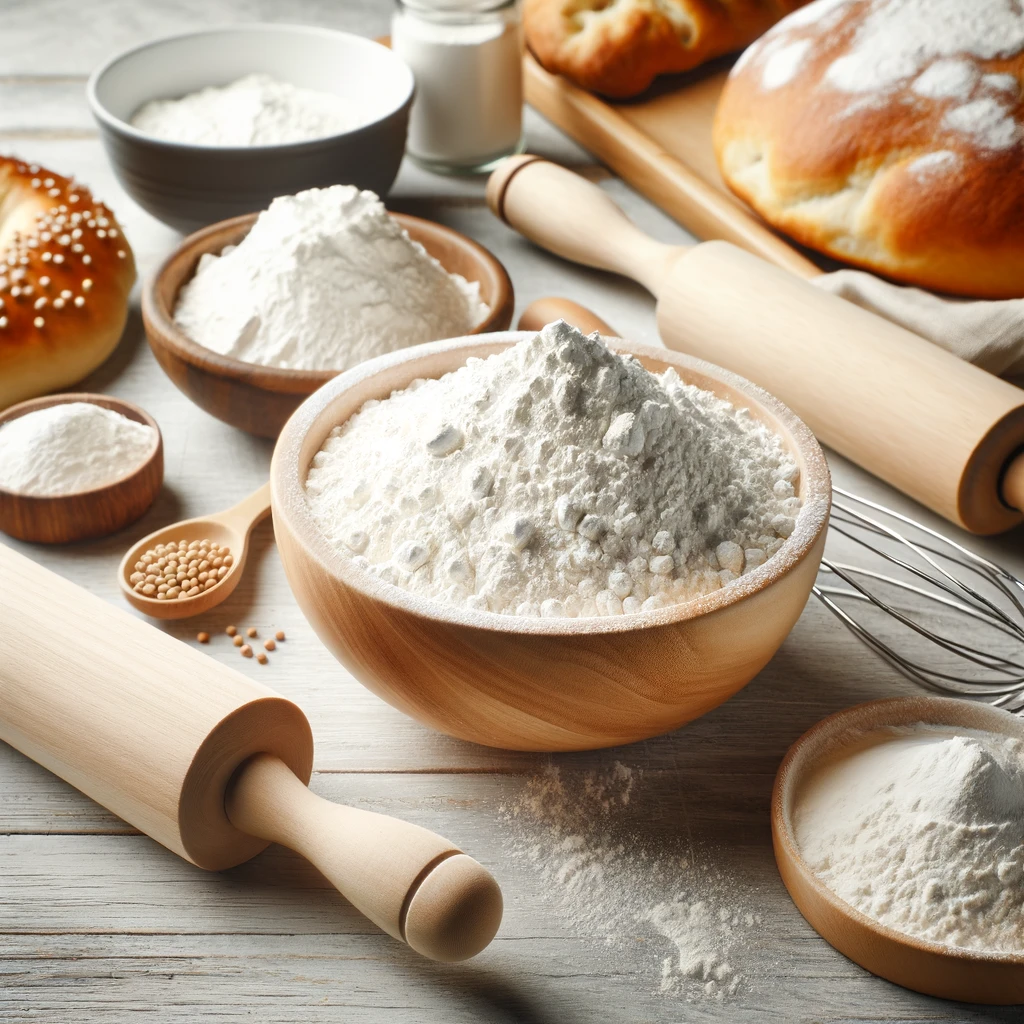reliable food sales
WHITE FLOUR
WHITE FLOUR
Couldn't load pickup availability
White flour is a refined flour made from wheat grains that have had the bran and germ removed, leaving behind the starchy endosperm. Known for its fine texture and light color, white flour is a versatile ingredient used in a wide range of culinary applications, from baking and cooking to thickening sauces.
What is White Flour? White flour is produced by milling wheat grains and then refining the flour to remove the bran (the outer layer) and germ (the nutrient-rich core). This process results in a smooth, pale flour that is easy to work with and has a mild flavor. The most common type of white flour is all-purpose flour, but there are also specialized varieties such as cake flour, bread flour, and pastry flour.
Types of White Flour:
- All-Purpose Flour: A versatile flour suitable for most baking and cooking needs. It has a moderate protein content, making it ideal for a wide range of recipes.
- Bread Flour: Has a higher protein content, which gives baked goods more structure and a chewier texture. It is perfect for making yeast breads and pizza dough.
- Cake Flour: A finely milled flour with a lower protein content, resulting in a soft, tender crumb. It is ideal for cakes, pastries, and delicate baked goods.
- Pastry Flour: Falls between all-purpose and cake flour in terms of protein content, making it ideal for pie crusts, biscuits, and other tender baked goods.
Uses in Culinary Applications:
- Baking: White flour is essential in baking for making bread, cakes, cookies, pastries, and muffins. Its fine texture and consistent quality help create light, fluffy, and tender baked goods.
- Cooking: Used as a thickening agent in sauces, gravies, soups, and stews. It helps achieve a smooth consistency and desired thickness.
- Frying: White flour is often used to coat foods before frying, creating a crispy, golden-brown exterior.
- Doughs and Batters: Integral in making pizza dough, pasta, pancake batter, and other dough-based recipes.
Advantages of White Flour:
- Versatility: White flour can be used in a wide range of recipes, making it a staple in most kitchens.
- Consistency: Provides consistent results in baking and cooking, ensuring reliable texture and flavor.
- Light Texture: The fine milling process results in a smooth, light flour that produces tender baked goods and silky sauces.
How to Use:
- In Baking: Measure white flour accurately using a kitchen scale or spoon and level method to ensure the correct texture and structure in baked goods. Sift the flour if a lighter texture is desired.
- As a Thickener: Create a slurry by mixing white flour with a small amount of cold water before adding it to hot liquids to prevent lumps.
- For Frying: Dredge food in white flour before frying to achieve a crispy coating. Season the flour with spices for added flavor.
- In Doughs: Combine white flour with other ingredients to make dough for bread, pizza, pasta, and pastries. Knead the dough until smooth and elastic.
Storage: Store white flour in an airtight container in a cool, dry place to maintain its freshness and prevent it from absorbing moisture or odors. For extended storage, keep flour in the refrigerator or freezer, especially in warm or humid climates.
White flour is a versatile and indispensable ingredient in the culinary world, offering a reliable base for a wide variety of recipes. Its fine texture, light color, and consistent quality make it a go-to choice for bakers, cooks, and chefs alike, ensuring delicious and beautifully textured dishes every time.
Share



